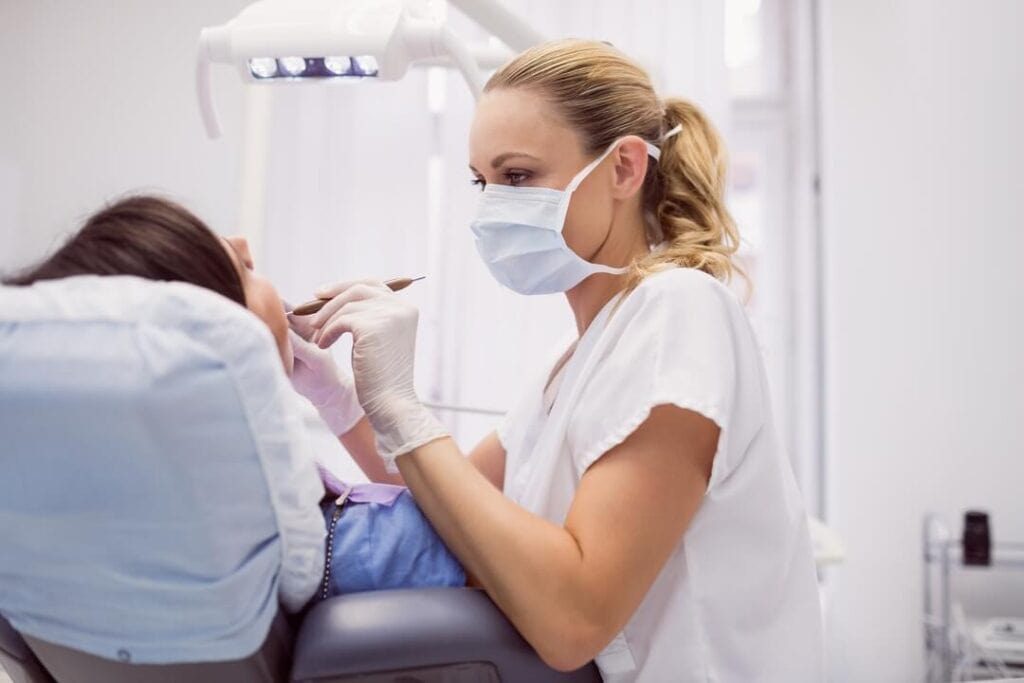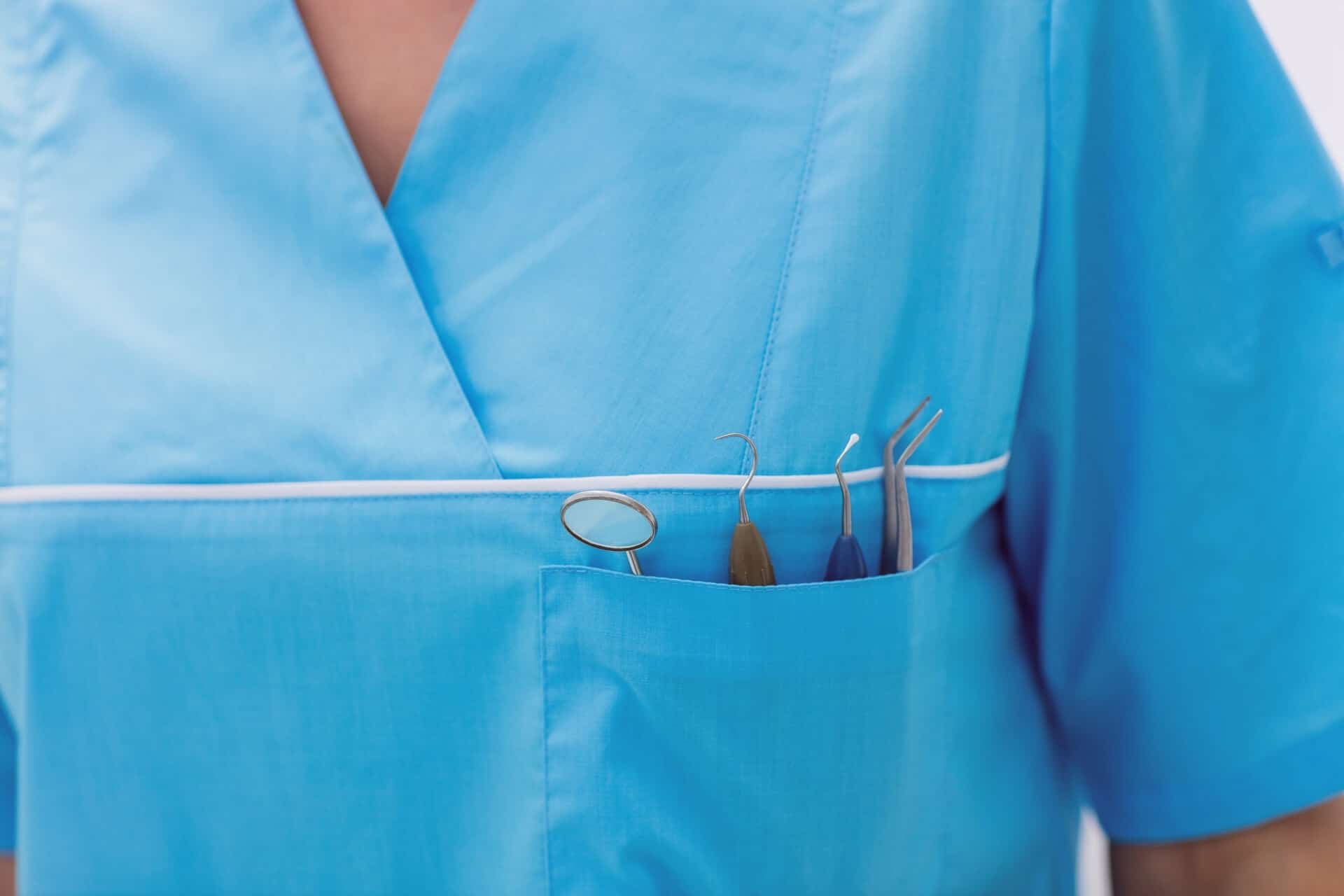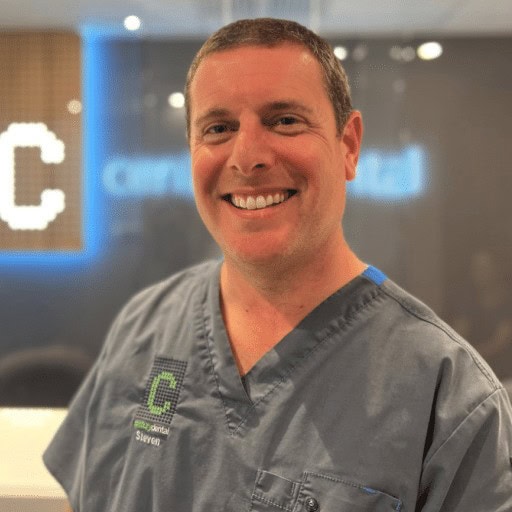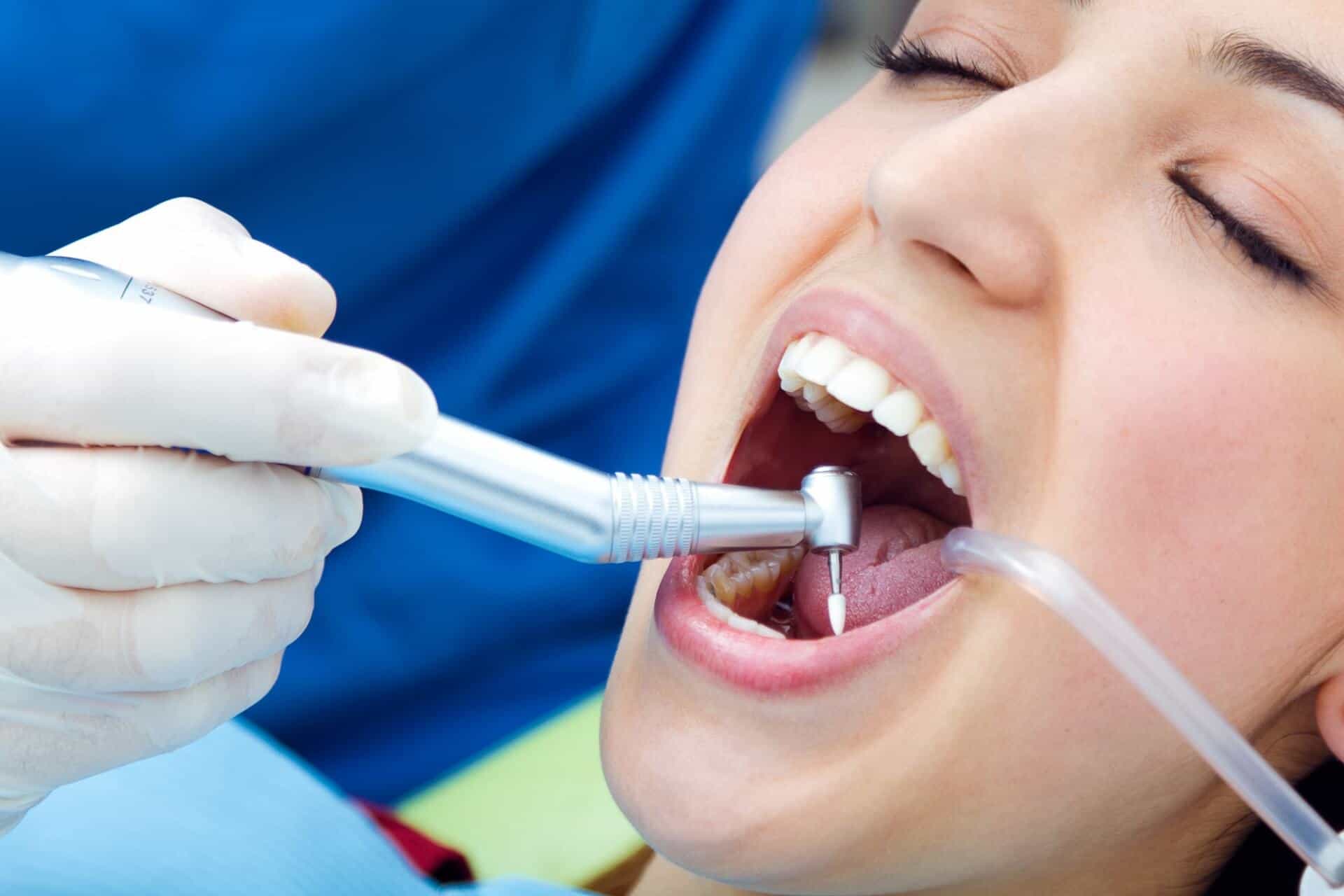When you walk into a dental practice, you’ll likely meet two key people during your visit: a dental hygienist and a dentist. While both work together to keep your mouth healthy, they have very different roles in your dental care.
Understanding the dental hygienist vs dentist differences can help you know what to expect during your dental appointment and make informed decisions about your oral health. Let’s break down the key differences between these two important members of your dental team.
What is the Difference Between a Dental Hygienist and a Dentist?

The main difference lies in their focus and scope of practice. A dental hygienist specialises in prevention and maintaining optimal oral health. Their job is to keep your teeth and gums healthy so you avoid bigger dental problems down the road.
Your dental hygienist focuses on preventive dental care and keeping your teeth clean. They’re the ones who’ll spend the most time with you during regular check-ups, and they’re experts at spotting early warning signs of gum disease and other oral health issues.
Here’s what your dental hygienist typically handles:
- Professional teeth cleaning, including scaling to remove stubborn plaque and tartar that your toothbrush can’t reach
- Root planing for patients with periodontal disease
- Checking your gums for signs of gum disease
- Applying fluoride treatments to strengthen your teeth and prevent tooth decay
- Taking dental X-rays and photographs
- Teaching you better brushing and flossing techniques for proper oral hygiene
- Giving you personalised tips and dietary advice for keeping your mouth healthy at home
- Keeping detailed records of your oral health needs
- Providing guidance on your oral hygiene routine
How dental hygienists complete their education:
Dental hygienists in Australia complete either a 2-year Advanced Diploma of Oral Health (Dental Hygiene) or a 3-year Bachelor of Oral Health.
They must register with the Dental Board of Australia through AHPRA and complete 60 hours of continuing professional development every three years to maintain their state license.
What Does a Dentist Do?
Your dentist is trained to diagnose dental problems, create treatment plans, and perform complex dental procedures that go beyond basic preventive care.
While dental hygienists focus on prevention, dentists step in when something needs to be fixed or when more advanced dental surgery is needed.
Here’s what your dentist handles:
- Examining your entire mouth and diagnosing oral diseases and dental problems
- Filling cavities and placing crowns, bridges, and veneers
- Performing root canal therapy and tooth extraction
- Treating advanced gum disease and other oral health issues
- Ability to prescribe medication when needed
- Planning your overall treatment for optimal oral health
- Handling dental emergencies like broken teeth or severe pain
- Providing cosmetic dental procedures like professional whitening
- Referring you to dental specialists when needed
- Overseeing the work of dental assistants and the entire dental team
How dentists complete their education:
Dentists in Australia complete either a 5-year Bachelor of Dental Science or a 4-year postgraduate Doctor of Dental Medicine (after completing a bachelor’s degree first). This means 5-8 years of dental school education to practice dentistry.
They must register with the Dental Board of Australia and complete 60 hours of continuing professional development every three years.
Key Differences Between a Dental Hygienist and a Dentist
| Aspect | Dental Hygienist | Dentist |
|---|---|---|
| Focus | Preventive care and oral hygiene | Diagnosis, treatment, and complex procedures |
| Common Procedures | Cleanings, plaque/tartar removal, fluoride treatments | Fillings, crowns, root canals, extractions, surgeries |
| Education & Training | Associate’s/Bachelor’s degree in dental hygiene (2-4 years) | DDS/DMD degree (8+ years total education) |
| Prescribes Medications? | No | Yes |
| Performs Surgery? | No | Yes |
| Role in Dental Practice | Supportive team member | Practice owner or lead provider |
| Diagnostic Authority | Limited to identifying potential issues | Full diagnostic capabilities |
| Treatment Planning | Assists with hygiene portion of plan | Creates comprehensive treatment plans |
Should I See a Hygienist or Dentist?
Understanding when to see each professional can help you receive the most appropriate dental care for your specific dental needs.
Schedule with a dental hygienist when you need:
- Your regular teeth cleanings and maintenance (every 6 months for most patients)
- Help with your brushing or flossing techniques
- Preventive treatments like fluoride treatments
- Someone to check your gums for early signs of gum disease
- Scaling and root planing for gum disease
- Guidance on maintaining a healthy mouth
See a dentist when you have:
- Pain, swelling, or sensitivity
- A broken tooth or dental emergency
- Cavities that need fillings
- Interest in cosmetic dental procedures
- Haven’t had a comprehensive check-up in a while
- Need a crown, bridge, or other complex treatments
- Require dental surgery or root canals
Who is More Qualified: A Dentist or Hygienist?
Both dental professionals play crucial roles in your oral health, but they have different qualifications and scopes of practice. Dentists undergo more extensive education (5-8 years) and can perform a broader range of dental procedures, including dental surgery and prescribing medications. However, dental hygienists are specifically trained experts in preventive care and often spend more time on teeth cleanings and patient education.
The question isn’t about who’s “more qualified,” but rather who’s best qualified for your specific dental needs at any given time.
Can Dental Hygienists Do Fillings?
No, dental hygienists cannot perform fillings in Australia. Fillings are considered restorative dental procedures that require a dentist’s training and qualifications. If your dental hygienist discovers tooth decay during your cleaning, they’ll refer you to the dentist for treatment.
Do You Need Both?
Absolutely.
Your dental hygienist keeps your teeth clean and catches dental problems early, while your dentist fixes issues that develop and handles more advanced treatment.
This partnership gives you the best of both worlds: ongoing preventive care and expert treatment when needed.
In Australia, dental hygienists work closely within what’s called a “structured professional relationship” with dentists. This means they work collaboratively, with the dentist overseeing the overall treatment plan while the dental hygienist focuses on their area of expertise.
Most dental visits include both professionals. You’ll typically start with the dental hygienist for your teeth cleaning and assessment, then the dentist will do an examination to make sure everything looks good.
The Bottom Line
Dentists and dental hygienists work as a team, each bringing different skills to keep your mouth healthy. The dental hygienist helps you prevent problems through regular teeth cleanings and education, while the dentist fixes them when they occur and provides more complex dental procedures.
Both professionals are registered with the Dental Board of Australia and must meet ongoing education requirements to maintain their registration. This ensures you’re receiving dental care from qualified practitioners who stay up-to-date with the latest techniques and standards.
Regular dental visits to both professionals ensure you get complete care – from routine teeth cleanings to complex treatments when needed. Don’t wait until something hurts to schedule your next dental appointment. Preventive care with both professionals will keep your smile pain-free and save you from bigger dental problems later on.
Experience Melbourne’s Leading Hygiene Department

At Dr Steven Rostkier’s dental practice, we’ve always believed that early detection and preventive care is the best way to guarantee healthy teeth for life. That’s why we established one of Melbourne’s first dedicated dental hygiene departments over 25 years ago.
Our experienced team of dental hygienists and dentists work closely together using this collaborative approach to give you the comprehensive dental care you deserve. With over two decades of expertise in preventive dental care, we’ve helped thousands of patients maintain optimal oral health through our proven team-based approach.
Ready to experience the benefits of comprehensive dental care? Book your dental appointment today and discover how our team of experienced dental hygienists and dentists can help keep your smile healthy for life.




